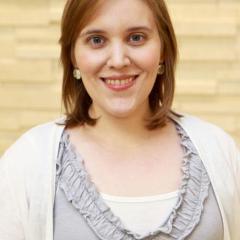
“Serve Us” to “Service”
I’ve had the privilege to learn from Rabbi Rick Jacobs on several occasions, the most recent of which was in January 2013 in Chicago. I was there, along with a lay partner, and representatives from a handful of other congregations to form the first cohort of the URJ’s Communities of Practice. Together, we were assembled to figure out how to make the strongest Early Childhood Centers, Young Families, or Young Adults program our individual synagogues could muster.
One of the most transformative insights was Rabbi Jacobs preaching in the name of Pastor Rick Warren, instructing that we must help move our community from a “serve us” to a “service” mentality. Rabbi Jacobs told us plainly, that in order to expand our work and fulfill our visions for Jewish life, we must cultivate the drive in each congregant to help build their own community.
I’m always intrigued by a clever turn of phrase, but “serve us” to “service” really made sense to me. In my synagogue, we used to spend a lot of time talking about not being a fee-for-service institution, rather, a sacred community. How, though, do you translate that ideological hope into reality?
Participating in the Communities of Practice has changed my professional perspective quite significantly. It has opened my eyes to how much every member of the congregation has to contribute and how much people want to be seen and heard for who they really are. Usually, all you have to do is ask and people are ready to serve. We extend our reach by extending invitations. I now see clearly that I am a facilitator of Jewish life, a connector of individuals, one to the next. What I’ve learned is that anything is possible in synagogue life when we are willing to extend our selves in order to extend our reach. When we really listen, we are able to help people build the synagogue and Jewish life of their dreams. I drank the Relational Judaism (http://www.jewishlights.com/page/product/978-1-58023-666-9) Kool-Aid before ever the book was published.
How does this paradigm shift play out for music and worship? Let’s look at three different examples that are either for children or families.
Now, I actively search for music explicitly builds relationships, not just through the experience of communal singing, but also through the internalizing of thoughtful texts. I searched high and low for an awesome song that would instill “service” in kids and families at our once-a-month family Shabbat worship. My hands down favorite is “In This House” by Beth Schafer. (http://www.youtube.com/watch?v=5vLXzSPXcAQ) Here, in clear English, the participant learns what the synagogue is for. This song is about the synagogue at its ideological peak; this song is about the synagogue of our dreams. No one leaves the worship service with any questions about why we gather, support, and serve our synagogue community.
Another song that I’m excited about right now is by Sheldon Low called, “Moochanim.” (https://soundcloud.com/#mary-rebecca-thomas/moochanim-by-sheldon-low) This children’s song teaches Hebrew, gets kids up and dancing, and has great energy. Imagine the transformation that happens in a Tot Shabbat room when every child and parents is dancing to the directions, counting in Hebrew, and clapping their yadayim? In our Tot Shabbat we head straight from here to Bar’chu, but not without stopping to say to the room “Are you ready to pray now? Are we wide awake and all together now?” It’s a pretty awesome moment. We are building a community of young kids and families who will have a different kind of answer when asked, “Are you ready to serve?”
I remember when my classmate Cantor Jamie Marx and Anna had their first baby. Ellie was born when we were still in school, I was pregnant, and so many of our circle were having their first babies. I remember, viscerally, what that experience was like, each of our lives being transformed one by one and by association as we crossed the threshold from young marrieds to young parents. This was, as Rabbi Benay Lappe calls it, a “crash”. A time when our worlds are turned fully upside down, the way we understood everything around us was shattered, and we were left to put the pieces back together and understand the universe in a new way.
Out of this feeling of transformative brokenness, I wrote this piece for Ellie’s naming along with Cantor Josh Breitzer. Our setting of B’ruchah Haba’ah (https://soundcloud.com/#mary-rebecca-thomas/bruchah-habaah) was born from a place of deep personal understanding that crashes are the most beautiful opportunity to connect and give to other people. What I’ve found in synagogue, life, however, is that we don’t always have our eyes open to all of the crashes in peoples lives. We know to look for those big public lifecycle moments, but are we always looking for other points of great transition? My hope is that as we build relationships and open our eyes to the complexity of contemporary life, we will find ways to usher people through those transformations, whether it be with ritual, music, or just knowing the right people to bring together in lasting relationship.
As we embark on this most unique Thanksgiving and Chanukah season, I pray that we are all looking for ways to extend our reach by extending our hands and hearts. When we do, there is nothing we cannot build.
Cantor Mary Rebecca Thomas is Assistant Cantor at Temple Beth El in Charlotte, NC. Mary’s was ordained cantor in 2011 from the Debbie Freedman School of Sacred Music of HUC-JIR. She is passionate about Jewish Living and all that entails: from worship to the Shabbat table to Torah study over coffee. Mary loves big ideas and - even more, loves to make those big ideas into reality. She and her wonderful spouse, Matthew, are proud parents to Johannah and Ezra.

